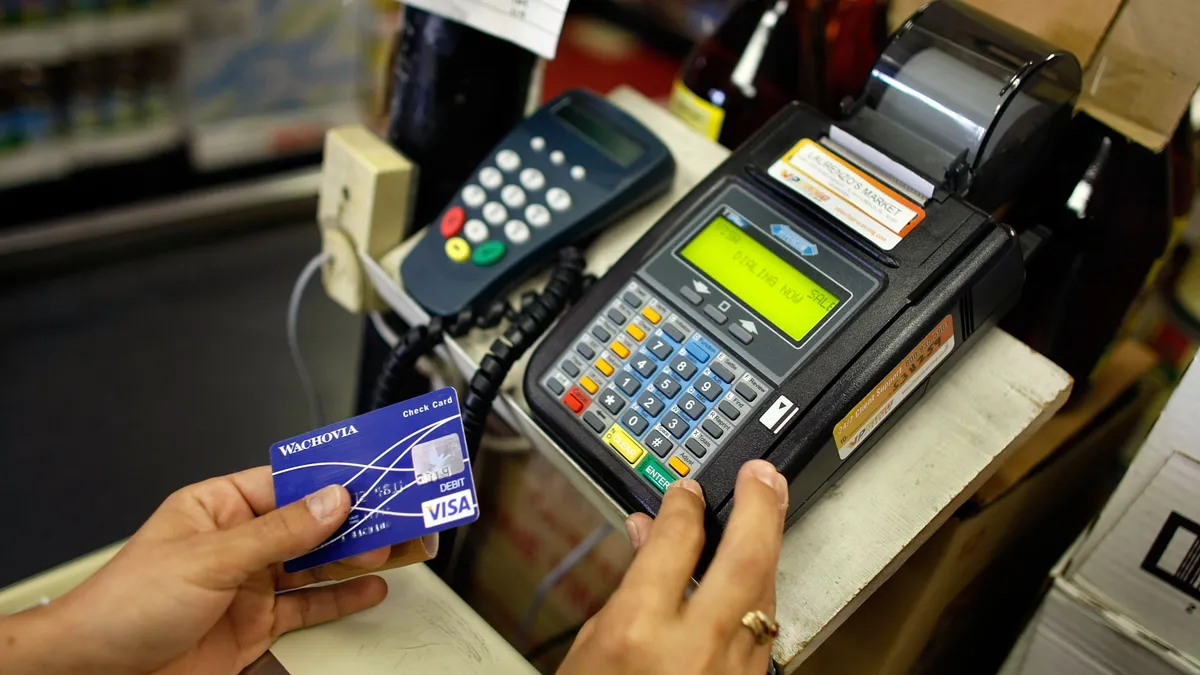Dive Brief:
- Debit cards were the top payment method for fraud attempts last year, with almost three-quarters (73%) of financial institutions surveyed by the Federal Reserve Financial Services saying they experienced such attempts, according to results released Tuesday. Checks were also a common vehicle for fraud attempts (62%), followed by non-bank payment apps (36%), ACH transactions (31%) and credit cards (24%).
- Fraudulent debit card transactions were also the most expensive for financial institutions last year, with 52% experiencing losses, followed by checks (32%), non-bank payment apps (16%) and credit cards (12%), the survey of 362 banks and credit unions showed. While debit card losses increased 6% last year over 2023, check fraud rose 5% and non-bank payment app losses edged up 1% over 2023, according to the report.
- Other types of fraud the financial institutions experienced included those on mobile payment tools, wire transfers, remote deposit capture and real-time payment systems, the survey said.
Dive Insight:
“Fraud attempts and fraud losses were most notable in debit cards and checks, with increasing attempts and losses realized,” the Fed report said. “In addition to challenges with scams and mule accounts, traditional legacy fraud approaches like forgery, counterfeits, stolen mail and impersonating authorized parties were noted as primary drivers.”
The Federal Reserve Financial Services unit’s research echoed other reports indicating that card-related losses are on the rise. Over the next decade, fraud losses in card payments are predicted to reach $403.88 billion globally, according to a Nilson Report analysis released in January. Financial firms in the U.S. could face an uptick in fraud for card-not-present transactions, the report said.
As financial institutions face persistent check-related fraud, the U.S. Postal Inspection Service has tried to address the issue with the help of the American Bankers Association. A year ago, the trade group teamed up with the government agency to educate bank and postal service customers about check fraud, spotting money mules or collusive account holders and enlisting law enforcement agencies as well as training postal and bank workers to identify unusual activity.
While the industry works to fight check fraud, President Donald Trump is pushing federal agencies away from the antiquated payment tool in most transactions.
Last week, Trump issued an executive order requiring federal government agencies to stop issuing paper checks for its disbursements, including intragovernmental payments, benefits, vendors and tax refunds by Sept. 30. The executive order cited a rise in mail theft of checks since 2020 and banks reporting a rise in check fraud as a reason behind the change.










